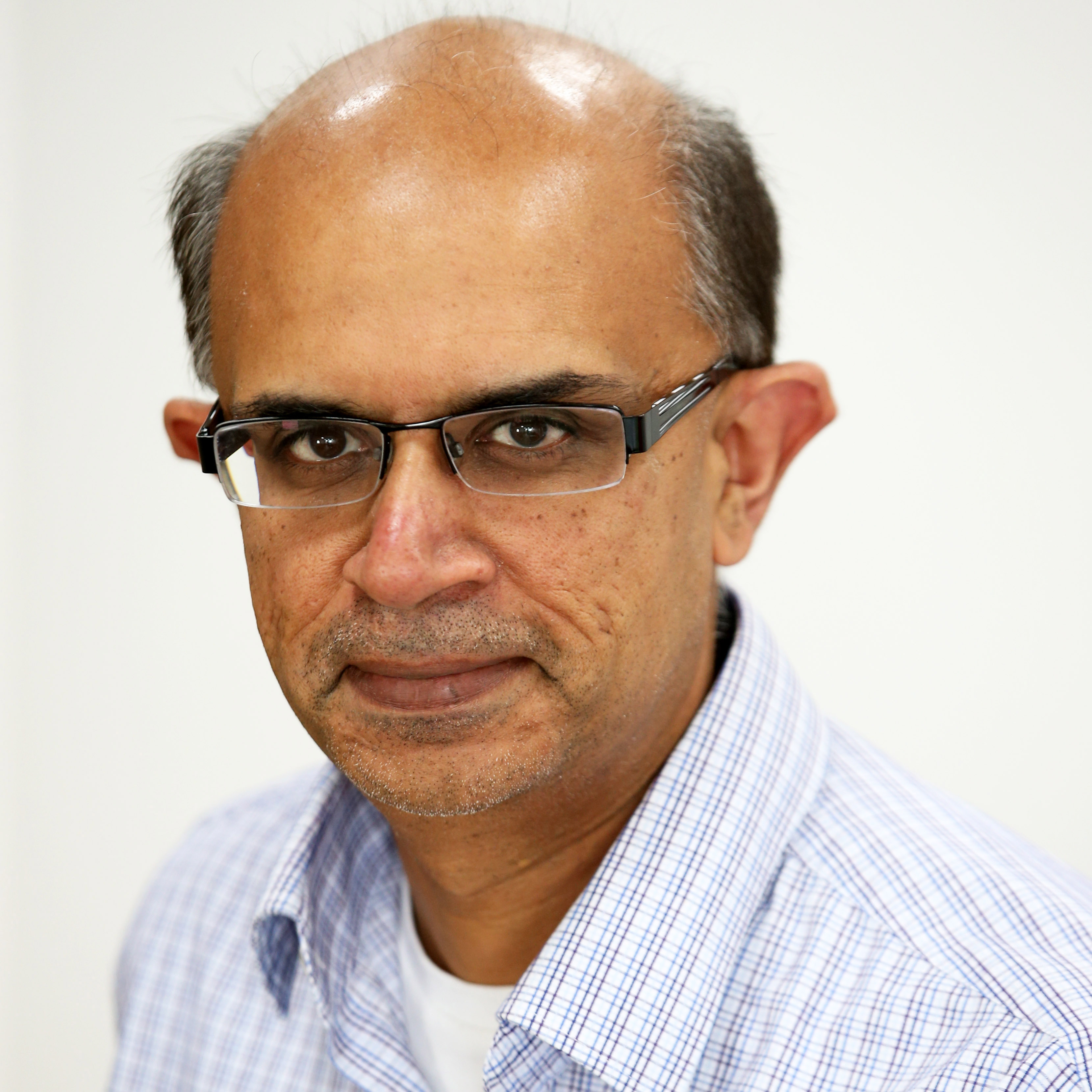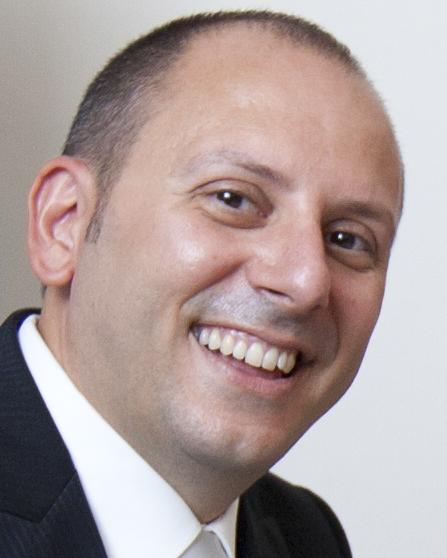 |
Prof.Omer Rana, Cardiff University, UK
Abstract: Realizing Edge Marketplaces.
The edge of the network has the potential to host services for
supporting a variety of user applications, ranging in complexity from
data preprocessing, image and video rendering, and interactive gaming,
to embedded systems in autonomous cars and built environments. However,
the computational and data resources over which such services are
hosted, and the actors that interact with these services, have an
intermittent availability and access profile, introducing significant
risk for user applications that must rely on them. This talk will
describe the development of an edge marketplace, which is able to
support multiple providers for offering services at the network edge,
and to enable demand supply for influencing the operation of such a
marketplace. Resilience, cost, and quality of service and experience
will subsequently enable such a marketplace to adapt its services over
time. This talk will also describes how distributed-ledger technologies
(such as blockchains) provide a promising approach to support the
operation of such a marketplace and regulate its behavior (such as the
GDPR in Europe) and operation. Application scenarios provide context for
the discussion of how such a marketplace would function and be utilized
in practice. |
|
Biography:
Omer F. Rana is Professor of Performance Engineering at Cardiff
University, with research interests in high performance distributed
computing, data analysis/mining and multi-agent systems. He leads the
Complex Systems Research Group. He was formerly the deputy director of
the Welsh eScience Centre and had the opportunity to interact with a
number of computational scientists across Cardiff University and the UK.
He serves on the steering committee of Cardiff University's
multi-disciplinary "Data Innovation" and "Energy Systems" Research
Institutes. Rana has contributed to specification and standardisation
activities via the Open Grid Forum and worked as a software developer
with London-based Marshall Bio-Technology Limited prior to joining
Cardiff University, where he developed specialist software to support
biotech instrumentation. He also contributed to public understanding of
science, via the Wellcome Trust funded "Science Line", in collaboration
with BBC and Channel 4. Rana holds a PhD in "Neural Computing and
Parallel Architectures" from Imperial College (London Univ.), an MSc in
Microelectronics (Univ. of Southampton) and a BEng in Information
Systems Eng. from Imperial College (London Univ.). He serves on the
editorial boards (as Associate Editor) of IEEE Transactions on Parallel
and Distributed Systems, (formerly) IEEE Transactions on Cloud
Computing, IEEE Cloud Computing magazine and ACM Transactions on
Internet Technology. He is a founding-member and associate editor of ACM
Transactions on Autonomous & Adaptive Systems.
|
|
 |
Prof.Gennaro Boggia, Politecnico di Bari, Italy.
Abstract: Securing the IoT in the mobile edge computing era: from myth to reality
The Internet of Things (IoT), with its promise to create a connect world, with billions of interconnected smart objects, will pave the way to novel pervasive services in many application domains. But the heterogeneity of connected devices and considered scenarios together with the huge number of involved communication nodes require particular attention for security issues. To effectively deploy the IoT in the real world, it is very important to secure the systems, ensuring data availability, privacy, integrity, trustiness. But taking into account, at the same time, that considered interconnected “things” have, in general, low computational, storage, energy capabilities, and they adopt, at the same time, different communication standards.
With this premise, starting from the general description of IoT, this talk will consider the interaction between different IoT domains and the related security issues. With reference to some significant use cases, considering also the possibility of exploiting the edge application services available at the boundary of core networks, security problems will be analyzed and critical aspects will be highlighted. New developed solutions for partially solving some of the considered issues will be also described more in depth.
. |
|
Biography:
Gennaro Boggia received, with honors, the Dr. Eng. and Ph.D. degrees in electronics engineering, both from the Politecnico di Bari, Bari, Italy, in Jul. 1997 and Mar. 2001, respectively. Since Sep. 2002, he has been with the Department of Electrical and Information Engineering, Politecnico di Bari, where he is currently a Full Professor in Telecommunications. From May 1999 to December 1999, he was a Visiting Researcher with the TILab, TelecomItalia Lab, Torino, Italy, where he was involved in the study of the core network for the evolution of 3G cellular systems. In 2007, he was a Visiting Researcher at FTW, Vienna, Austria, where he was involved in activities on passive and active traffic monitoring in 3G networks. He has authored or coauthored more than 150 papers in international journals or conference proceedings, gaining more than 5000 citations (source: Google Scholar). He is active in the IETF ICNRG WG and in the IEEE WG 6TiSCH. He is also regularly involved as a Member of the Technical Program Committee of many prestigious international conferences. His research interests include the fields of Internet of Things (IoT), Network Security, Security in Iot, Wireless Networking, Cellular Communication, Information Centric Networking (ICN), Protocol stacks for industrial applications, Internet measurements, Network Performance Evaluation. Dr. Boggia is currently an Associate Editor for the IEEE Commun. Mag., the ETT Wiley Journal, and the Springer Wireless Networks journal.
|
|
 |
Dharma Rajan, VMware Inc., USA
Abstract: Software Defined Everywhere
Public, private, and hybrid clouds are now a de facto industry model. New cloud services are being introduced by the industry at a very fast pace. This keynote session will take you through the journey of cloud evolution, from enterprise to Telco to emerging edge clouds. Transformation that is happening in the industry with Software defined systems at compute, storage, networking layers with in-built security, management, process automation and Orchestration for on-premise and cross-cloud will be discussed. An industry perspective on how NFV deployment has become a great succus across the industry and how 5G, virtual RAN and IoT cloud evolution will enable new service models will be shared.
. |
|
Biography:
Dharma Rajan is a leading expert in cloud technology working as Distinguished Principal Solution Architect at VMware, USA. His areas of expertise span infrastructure virtualization, hybrid cloud, NFV, and cloud security. Prior to joining VMware, Dharma has worked at Ericsson, USA for over a decade, building 4G platform architectures, carrier grade networks, and network management systems. He has also worked at Cisco Systems, USA on enterprise architecture. He has several technical publications, patents, IETF contributions and is an invited speaker at major industry events and world conferences. He holds an MS in Computer Engineering from NCSU, USA and M.Tech in CAD from IIT-Kanpur, India.
|
|
 |
Prof.Vincenzo Piuri, FIEEE, Università degli Studi di Milano, Italy
Abstract: Ambient intelligence: convergence of artificial intelligence,
cloud-computing, internet-of-things, and biometrics for smart environments
Adaptability and advanced services for ambient intelligence require an intelligent technological support for understanding the current needs and the desires of users in the interactions with the environment for their daily use, as well as for understanding the current status of the environment also in complex situations. This infrastructure constitutes an essential base for smart living. Various technologies are nowadays converging to support the creation of efficient and effective infrastructures for ambient intelligence.
Artificial intelligence can provide flexible techniques for designing and implementing monitoring and control systems, which can be configured from behavioral examples or by mimicking approximate reasoning processes to achieve adaptable systems. Machine learning can be effective in extracting knowledge form data and learn the actual and desired behaviors and needs of individuals as well as the environment to support informed decisions in managing the environment itself and its adaptation to the people’s needs.
Biometrics can help in identifying individuals or groups: their profiles can be used for adjusting the behavior of the environment. Machine learning can be exploited for dynamically learning the preferences and needs of individuals and enrich/update the profile associated either to such individual or to the group. Biometrics can also be used to create advanced human-computer interaction frameworks.
Cloud computing environments will be instrumental in allowing for world-wide availability of knowledge about the preferences and needs of individuals as well as services for ambient intelligence to build applications easily.
This talk will analyze the opportunities offered by these technologies to support the realization of adaptable operations and intelligent services for smart living in ambient intelligent infrastructures.
|
|
Biography:
Vincenzo Piuri has received his Ph.D. in computer engineering at Politecnico di Milano, Italy (1989). He is Full Professor in computer engineering at the Università degli Studi di Milano, Italy (since 2000). He has been Associate Professor at Politecnico di Milano, Italy and Visiting Professor at the University of Texas at Austin and at George Mason University, USA.
His main research interests are: artificial intelligence, computational intelligence, intelligent systems, machine learning, pattern analysis and recognition, signal and image processing, biometrics, intelligent measurement systems, industrial applications, digital processing architectures, fault tolerance, dependability, and cloud computing infrastructures. Original results have been published in more than 400 papers in international journals, proceedings of international conferences, books, and book chapters.
He is Fellow of the IEEE, Distinguished Scientist of ACM, and Senior Member of INNS. He has been IEEE Vice President for Technical Activities (2015), IEEE Director, President of the IEEE Computational Intelligence Society, Vice President for Education of the IEEE Biometrics Council, Vice President for Publications of the IEEE Instrumentation and Measurement Society and the IEEE Systems Council, and Vice President for Membership of the IEEE Computational Intelligence Society.
He is Editor-in-Chief of the IEEE Systems Journal (2013-19), and Associate Editor of the IEEE Transactions on Cloud Computing and IEEE Access, and has been Associate Editor of the IEEE Transactions on Computers, the IEEE Transactions on Neural Networks and the IEEE Transactions on Instrumentation and Measurement.
He received the IEEE Instrumentation and Measurement Society Technical Award (2002). He is Honorary Professor at: Obuda University, Hungary; Guangdong University of Petrochemical Technology, China; Northeastern University, China; Muroran Institute of Technology, Japan; and the Amity University, India
|
|
|
|